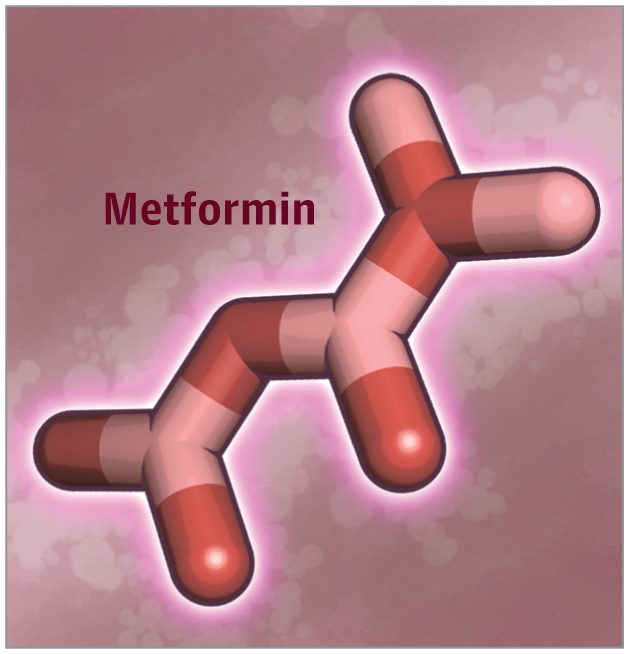Women’s stroke risk factors, a diabetes drug for heart disease, and a meta-analysis of diets made the news in recent months.
Low Lipids and Hemorrhagic Stroke
Very low levels of low-density lipoprotein cholesterol (LDL-C) or low levels of triglycerides were associated with an increased risk of hemorrhagic stroke among women in a prospective cohort study recently published in Neurology. Prior studies have linked low lipid levels to bleeding strokes, but sex-specific data haven’t been available until now.
Researchers examined data from 27 937 participants in the Women’s Health Study, most of whom were not taking lipid-lowering therapies at baseline. Over an average 19.3 years of follow-up, there were 137 incidents of hemorrhagic stroke. The strokes were more than twice as likely to occur among the 3.8% of women with LDL-C levels lower than 70 mg/dL relative to those with levels ranging from 100 to 129.9 mg/dL, the reference range. And compared with women in the top quartile of triglycerides, those in the lowest quartile also had 2 times the risk of hemorrhagic stroke.
Although very low LDL-C levels are not considered a risk factor for heart attack and ischemic stroke, the findings suggest this may not be the case for hemorrhagic stroke. Low cholesterol may affect the integrity of the vessel walls, making them more susceptible to bleeding events, said lead study author Pamela Rist, ScD, an associate epidemiologist at Brigham and Women’s Hospital and an assistant professor of medicine at Harvard Medical School in Boston. Given this, it’s “important to manage other risk factors for hemorrhagic stroke among these women, such as hypertension or smoking,” Rist told JAMA.
Women with LDL-C levels ranging from 130 to 159.9 mg/dL or 70 to 99.9 mg/dL did not have a greater risk of hemorrhagic stroke in the study. But the researchers did find a nonsignificant suggestion of increased risk in women with high levels of LDL-C at or above 160 mg/dL. (Fluticasone) Other studies have not explored whether high LDL-C levels are associated with hemorrhagic strokes, according to Rist, so further research is needed.
Metformin’s Cardioprotective Effect
A 2000-mg daily dose of metformin improved left ventricular hypertrophy (LVH) in a proof-of-concept randomized clinical trial involving 68 patients who did not have diabetes but had coronary artery disease (CAD) and insulin resistance, prediabetes, or both. Published recently in the European Heart Journal, the results bolster observational data that suggest metformin is cardioprotective and raise the possibility of using the drug in patients with CAD who don’t have diabetes, the study’s authors said.

A serious risk factor for adverse cardiovascular outcomes, LVH—thickening of the heart’s main pumping chamber—is largely a consequence of high blood pressure. However, normotensive patients with obesity or insulin resistance can also develop the condition, highlighting the need for new treatment strategies beyond blood pressure control.
In the 12-month trial, prolonged-release metformin significantly reduced left ventricular mass indexed to height compared with placebo. The diabetes drug also reduced body weight, systolic blood pressure, and a biomarker for oxidative stress—changes that could underpin its effect on LVH, according to Chim Lang, MD, the study’s senior author and head of the division of molecular and clinical medicine at the University of Dundee School of Medicine in Scotland.
The results from an ongoing larger trial could provide conclusive evidence of metformin’s cardioprotective effects, Lang said.
Red Meat vs Plant-Based Protein
Substituting red meat with high-quality plant protein sources was associated with more favourable changes in cardiovascular risk factors relative to dietary replacements combined in a recent meta-analysis of randomized clinical trials (RCTs) published in Circulation.
Previous findings from RCTs that evaluated the effects of red meat on cardiovascular disease risk factors have been inconsistent. However, when comparing outcomes, those studies combined non–red meat diets, which varied considerably in quality and composition.
The new study, which included 36 trials involving 1803 participants, is the first to separately compare diets high in red meat with those high in other types of foods, according to lead author Marta Guasch-Ferré, PhD, a research scientist in the department of nutrition at the Harvard T.H. Chan School of Public Health in Boston. Comparison diets were stratified by high-quality plant protein; chicken, poultry, and fish; fish only; poultry only; mixed animal protein sources including dairy; low-quality refined grains and simple sugars; or usual diet.
Based on this analysis, diets with more high-quality plant protein from sources such as legumes, soy, and nuts were linked to lower levels of both total and LDL cholesterol compared with red-meat heavy diets. However, when diets with red meat were compared with all other types of diets combined, no significant differences in total cholesterol, lipoproteins, or blood pressure were found. Only triglyceride levels were elevated with red meat consumption compared with other diets combined.
Surprisingly, red meat-heavy diets appeared to lower cholesterol levels more than fish diets. Long-term, well-designed studies are needed to confirm this. “The potentially beneficial effects of red meat consumption versus fish on total cholesterol and LDL-C observed in our analyses may mostly reflect studies in which participants consumed lean, unprocessed meat and both interventions adhered to nutritional recommendations,” Guasch-Ferré said.
“The main takeaway message should be to encourage the intake of legumes, nuts, vegetable fats, oils, and other foods from plant sources while the intake of animal fats, and particularly red and processed meat, should be discouraged,” she added.
The findings also underscore the importance of the comparison diet when assessing the effects of nutrients or foods, Guasch-Ferré said. High-quality plant protein sources generally have higher proportions of polyunsaturated fatty acids and fibre than red meat, and no cholesterol, potentially leading to health improvements, but red meat may have null or more beneficial effects on cardiovascular risk factors than do refined grains or added sugars.
However, Guasch-Ferré cautioned that most of the individual studies included in the meta-analysis were small and that dietary intervention trials sometimes have low compliance, which could minimize differences between comparison diets. She also noted that the total diet could modify the effects of individual foods on lipid parameters.









